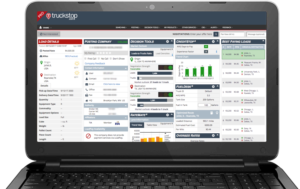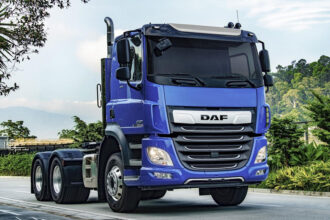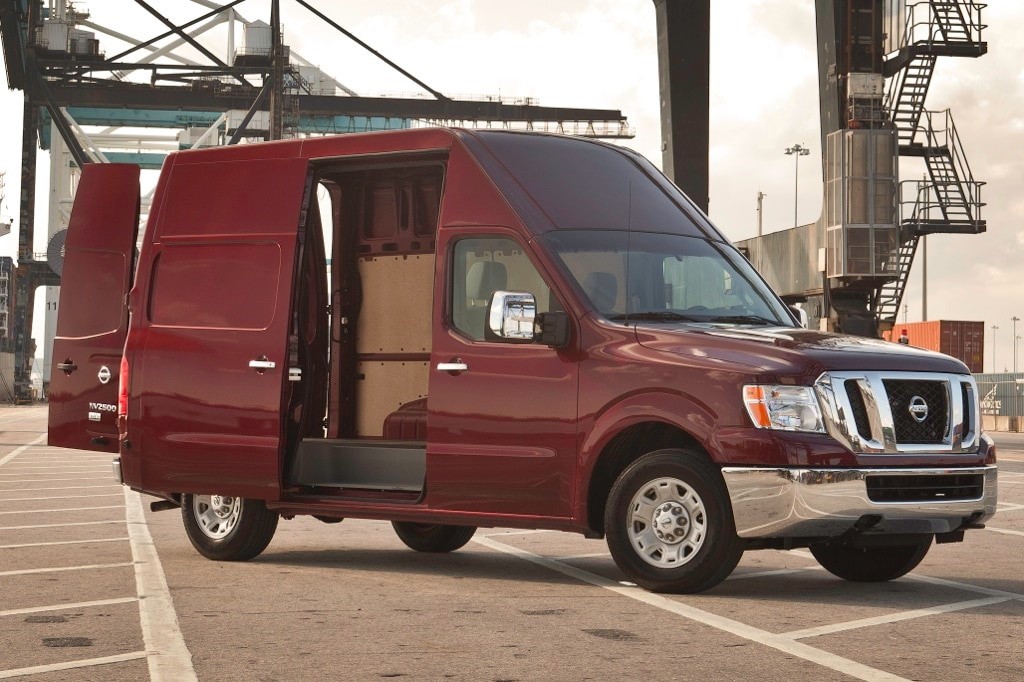Table of Contents
Starting a successful tanker truck business begins with a well-crafted business plan. In the fast-paced world of logistics and transportation, having a solid blueprint is not just a choice; it’s a necessity. Your business plan serves as the compass guiding you through the complexities of this industry, ensuring you stay on the path to profitability.
Firstly, a business plan provides a clear roadmap. It helps you define your goals, outline strategies, and identify potential obstacles, ensuring your business moves forward with purpose and precision. It’s your trusted companion, offering insights into market trends, competition, and financial projections.
Moreover, investors and lenders demand a well-structured business plan before considering funding. It showcases your commitment, expertise, and calculated approach to risk management, making you a more attractive investment prospect.
In essence, your tanker truck business plan is the foundation upon which your empire of liquid logistics is built. It’s not just a document; it’s your strategic advantage in this competitive arena, setting the stage for a profitable and enduring journey.
So, if you’re gearing up to conquer the tanker truck industry, remember that your business plan is the engine that propels your dreams into reality.
To start a tanker truck business plan:
1. Understand Tanker Truck Industry Regulations
To establish a tanker truck business plan, understand tanker truck industry regulations.
Navigating the labyrinth of tanker industry regulations is both intricate and indispensable. Staying aligned with the ever-evolving legal landscape involves harmonizing with authorities like the U.S. Department of Transportation (DOT), the Federal Motor Carrier Safety Administration (FMCSA), and state regulators. A prosperous tanker business necessitates not only comprehension but also adept management of diverse compliance concerns.
Your business plan’s genesis should be a meticulous inventory of these legal requisites, showcasing your grasp of federal and state norms and your vigilance in upholding ongoing compliance.
Start by delineating pivotal regulations pertinent to your operation. These encompass driver adherence, hours of service limitations, vehicle safety protocols, and cargo-specific mandates. This groundwork ensures not only legality but also your unwavering commitment to safety and adherence in the tanker realm.
>>>PRO TIPS: Is Tanker Good Business?
2. Research and Market Analysis
To pen down a tanker truck business plan, research and market analysis.
Conducting meticulous research and market analysis is paramount for your tanker truck business; it’s non-negotiable. First and foremost, researching the demand for tanker truck services in your chosen area reveals the exact pulse of your potential customer base, ensuring you meet their needs precisely.
Identifying competitors and their strengths and weaknesses provides a strategic advantage. It’s like knowing your opponents’ playbooks in a game of chess, helping you position your business intelligently. Moreover, staying abreast of industry trends, particularly in areas like regulations and environmental concerns, keeps you ahead of the curve, ensuring your tanker truck business remains compliant and environmentally responsible.
3. Find Clients
To write a tanker truck business plan, find clients.
Your business plan must reserve substantial real estate for a robust marketing and client acquisition strategy. Start by pinpointing your target market—whether local or long-haul—and possibly catering to specific cargo niches such as refrigerated or hazardous materials. Recognizing their unique needs becomes the cornerstone of tailoring your services to outshine your competitors.
Remember, referrals are golden in the trucking industry. Devote time in your plan to discussing how you can nurture client relationships and stimulate referrals, perhaps through speedy deliveries, top-notch service, competitive pricing, or value-added offerings.
Also, detail your client retention and referral game plan. Superior service, competitive pricing, and value-adds remain key. Demonstrating a commitment to long-term growth in your business plan assures lenders and investors of your dedication to building a solid reputation and a thriving bottom line.
4. Consider Hiring a Qualified Driver
To get a tanker truck business plan, consider hiring a qualified driver.
Hiring quality tanker truck drivers is essential for the success of your trucking business.
Firstly, define the qualifications you expect from drivers. While experience and a clean driving record are standard requirements, consider whether specific commercial driver’s license endorsements are necessary for your tanker.
Outline your plans for driver training and ongoing professional development.
Offer competitive incentives and benefits to attract and keep top talent. Research local trucking wages to determine competitive pay, benefits, and driver schedules. Given the industry’s high turnover rate, showcasing your plans for driver retention is crucial.
5. Acquire Fleet and Equipment
To start a tanker truck business plan, acquire fleet and equipment.
Securing the right fleet and equipment is paramount for businesses involved in transporting liquids or materials. Determine the types of liquids or materials you want to transport, such as chemicals, petroleum, water, or other fluids.
This categorization dictates the specific tanker trucks and equipment you need.
Invest in vehicles and machinery that adhere to rigorous safety and environmental standards. Compliance with these regulations is non-negotiable, as it safeguards both your business and the environment. Regular inspections and maintenance are crucial to ensuring the ongoing safety and efficiency of your operation. By conscientiously choosing and maintaining your fleet and equipment, you establish a solid foundation for success in the liquid transport industry.
6. Establish Operations and Safety Protocols
To get a tanker truck business plan, establish operation and safety protocols.
Establishing robust safety measures is a paramount responsibility for any business dealing with transportation, especially when handling hazardous materials. First and foremost, develop comprehensive safety protocols and training programs for your drivers. This ensures your drivers are well-prepared to handle emergencies and follow safety procedures diligently.
Furthermore, maintaining your fleet’s health is crucial. Implement a regular maintenance schedule for your tanker trucks to guarantee your tanker truck remains in optimal working condition, reducing the risk of breakdowns during transit.
7. Prepare Financial Projections
To establish a tanker truck business plan, prepare financial projections.
Begin by outlining your startup costs, covering everything from equipment to permits. Then, delve into operating expenses, accounting for day-to-day running costs. Revenue projections should forecast your income over time, grounding your expectations in reality.
Equally vital is determining your financing strategy. Can you rely on personal savings to kickstart your enterprise? Or perhaps you’re considering loans or attracting investors. Each option has its implications, impacting your control and financial obligations. Thoroughly analyzing these choices can set a sturdy financial foundation for your business, ensuring you’re well-prepared for the journey ahead.
>>>GET SMARTER: Scania Trucks Review
8. Set Pricing and Contracts
To write a tanker truck business plan, set pricing and contracts.
Calculate your operating costs meticulously, factoring in expenses such as materials, labor, and overheads. Simultaneously, assess the prevailing market rates to position your services competitively.
Once your pricing strategy is in place, establish clear and comprehensive contracts and agreements with your clients. These should encompass terms and conditions that outline the scope of services, payment schedules, and expectations on both sides. Clarity in contracts not only fosters trust but also provides a legal framework in the event of disputes. Effective pricing and transparent contracts are keystones to building lasting client relationships and a thriving business.
9. Consider Obtaining Insurance Coverage and Implement Risk Management
To compile a tanker truck business plan, consider obtaining insurance coverage and implement risk management.
Plan to secure the right insurance coverage. This includes liability insurance to protect against unforeseen accidents, cargo insurance for goods in transit, and environmental insurance to address potential ecological concerns.
Simultaneously, a well-thought-out risk management plan is imperative. It identifies potential hazards and outlines strategies to mitigate accidents or spills, prioritizing safety and compliance.
Also, a contingency plan is your lifeline during emergencies. It should detail step-by-step procedures for crisis management, ensuring quick and effective responses. These measures collectively safeguard your tanker truck business’s longevity, reputation, and the safety of your team and the environment.
Recap
Selecting the right business structure is paramount; whether it’s a sole proprietorship, LLC, or corporation, this decision sets the stage. Registration and the acquisition of permits and licenses establish credibility and legality.
Your fleet and equipment are the lifeblood of your operation. Ensure it aligns precisely with the materials you transport and adheres to stringent safety and environmental standards.
Safety takes center stage. Develop comprehensive protocols and driver training, coupled with a rigorous maintenance routine for your vehicles. Handling hazardous materials demands precision and caution.
Financial acumen is your compass. Compute startup costs, operating expenses, and revenue projections meticulously. Consider financing options, be it personal savings, loans, or investor partnerships.
Risk management is non-negotiable. Implement it alongside a robust contingency plan for unforeseen emergencies.
Finally, your pricing strategy should find equilibrium between costs and market rates, while clear contracts cement client relationships, fostering mutual trust.
With these integrated elements, your journey in the tanker trucking realm promises safety, profitability, and enduring success.



















